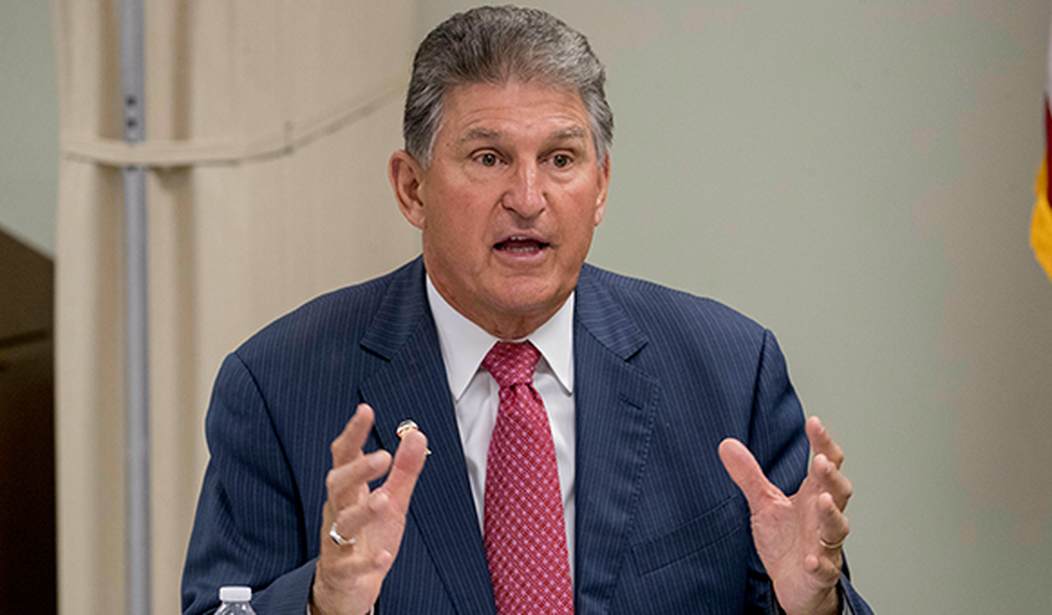Consider this a bookend to yesterday’s post about Mitch McConnell. The fact that Joe Manchin and Kyrsten Sinema voted to advance the new budget resolution enabling the reconciliation process for the Democrats’ progressive wish list tells us who they are. Now all we’re doing is negotiating the sell-out costs:
The Senate adopted the measure 50 to 49, with one lawmaker, Senator Mike Rounds, Republican of South Dakota, absent for the vote just before 4 a.m. But less than four hours later, Mr. Manchin issued a statement declaring “serious concerns about the grave consequences facing West Virginians and every American family if Congress decides to spend another $3.5 trillion.”
“I firmly believe that continuing to spend at irresponsible levels puts at risk our nation’s ability to respond to the unforeseen crises our country could face,” Mr. Manchin said. “I urge my colleagues to seriously consider this reality as this budget process unfolds in the coming weeks and months.”
Senator Kyrsten Sinema of Arizona, another key Democrat, had previously said she would not support a final $3.5 trillion package. Like Mr. Manchin, she framed her vote in support of the budget blueprint as a way to begin the process, as opposed to embracing the intended outcome.
McConnell’s strategy in signing onto the bipartisan $1.2 trillion bill seemed to be twofold. First, he clearly wants to reduce the pressure on the filibuster, and this deal does make it hard to argue that Republicans will refuse to collaborate on anything. It also points up the radical nature of the remaining agenda items that Chuck Schumer has folded into the reconciliation bill, although that was obvious enough anyway.
The potential second strategy would have been to pressure Manchin and other moderates to torpedo the reconciliation bill. There is an essential trust issue in collaboration, as Republicans provided in the infrastructure deal. They are trusting that those negotiations resolved that issue altogether, rather than just allow Democrats to transfer the objectionable portions to a budget reconciliation package that the GOP can’t halt. Otherwise, McConnell and his caucus would have been better off telling Democrats to take on all of the risk of yet another massive spending package on their own.
Perhaps Manchin and Sinema will use the price tag to justify torpedoing the whole thing at the floor-vote point. Schumer isn’t reading it that way, though:
“Every part of Biden’s proposal will be there in a big, robust way,” Schumer said when asked about lowering price tag. “There are some members in our caucus who want less, there are some members in our caucus who want more. We’re going to come together to meet that goal.”
— Manu Raju (@mkraju) August 11, 2021
Schumer’s playing “Let’s Make a Deal,” and it’s a safe bet that Sinema is as well, if not Manchin. Sinema is much more openly progressive than Manchin, although more realistic than many in her caucus about the limits to which that can be imposed. Sinema has gone on the record to state that she could support a reconciliation bill that focuses on genuine economic infrastructure as long as the price doesn’t get out of hand — which isn’t saying much after a year-long off-budget spending spree of $6 trillion or more.
If McConnell is resting his hopes on Manchin, that’s not terribly optimistic either. Manchin represents a much more Republican state than anyone else in the caucus, but they are a populist electorate, not a fiscally conservative electorate. West Virginians are used to officials in Washington bringing home the bacon and then naming buildings after them. Manchin understands that, and will respond to those incentives much more than McConnell’s entreaties on trust.








Join the conversation as a VIP Member